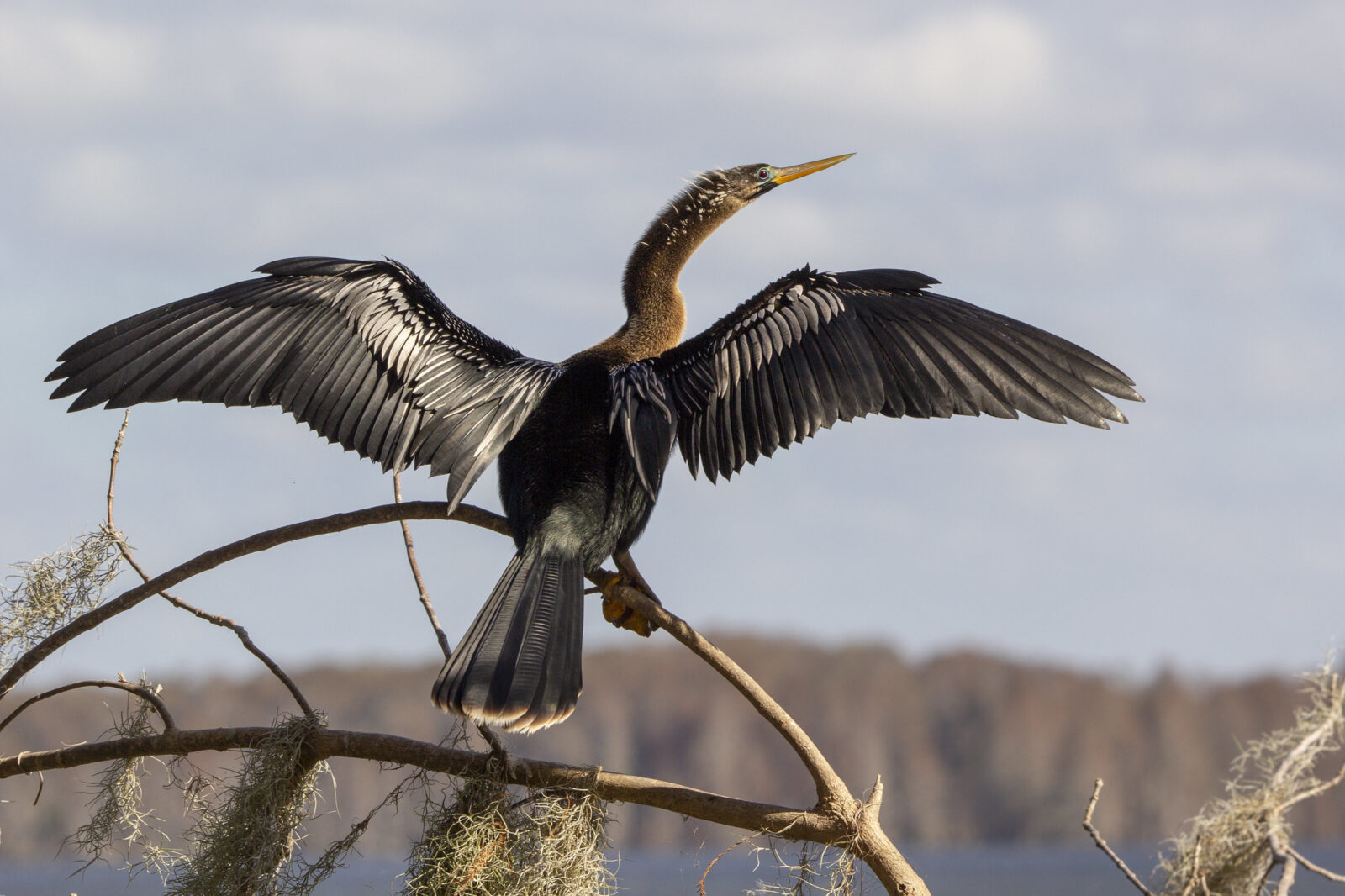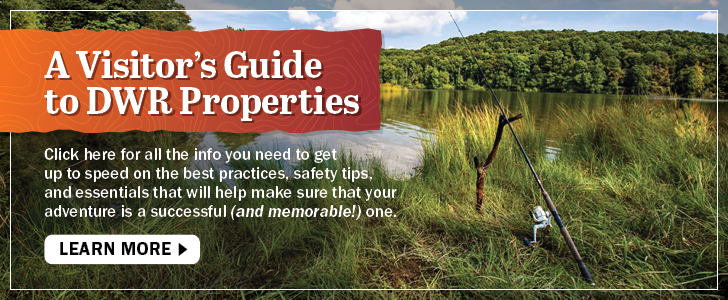By Sergio Harding

Anhinga (photo by Dennis Church)
2023 was a seminal year for the Atlas project, as it took several big leaps forward toward publishing the Atlas results as a website in the fall of 2025.
Maps and Models – it’s all about the data
Dr. Ashley Peele completed review of over 1.5 million breeding bird records reported by Atlasers, resulting in a database of over 722,000 records with sufficient breeding evidence to be included in data summaries and analyses. This database was used by Ashley and her colleague Dr. Elizabeth Hunter to model the current distribution (i.e. where the species is found within the Commonwealth) of close to 150 species. The models predict where a species occurs, extrapolating beyond where that species was observed to include Atlas blocks that received little survey attention or that were not surveyed at all; this provides a better picture of the true distribution of many of our species, beyond what the raw data alone can do. In addition, point count data collected by Atlas technicians were used to model abundance, resulting in ‘heat’ maps that show where different species are more or less numerically abundant within the Commonwealth.
Species Accounts and Beyond – the Atlas team grows

Managing Editor Austin Kane
The Atlas team expanded with the addition of Austin Kane, who joined us in August 2023 as Managing Editor for the Atlas. A seasoned editor and project manager, Austin has worked on a variety of natural resource publications, including co-authoring the 2015 Virginia Wildlife Action Plan. She is overseeing production of all written content for the Atlas; this includes guiding and contributing to the writing and editing and coordinating peer review (review by experts in the field). Within her purview is creation of the Species Accounts, which will be the beating heart of the Atlas website. Austin and the Atlas Final Products Committee invested a considerable amount of time in developing a framework such that the Species Accounts, while data-driven, will be engaging, informative and easy to understand.
Rounding out the Atlas team are two Species Account Authors who are supervised by Austin. Hired in December 2023, Ron Rohrbaugh and Megan Massa will spend up to 6 months drafting accounts for over 200 bird species that were documented as breeders in Virginia through the Atlas. Both authors bring considerable knowledge of the life history, ecology and habitat associations of birds in Virginia and beyond. Both also have the analytical skills to understand the complex modeling behind the distribution and abundance maps, and the writing skills to deliver meaningful interpretation of these results in a way that is accessible to non-technical audiences.
An established ornithologist, Ron has worked for the National Audubon Society and for Cornell Lab of Ornithology, where he contributed content to eBird and All About Birds. He is also an accomplished author of children’s books focusing on natural history and the outdoors. Megan developed her birding chops in Virginia, and recently earned a Master’s degree from Frostburg State University in Maryland. Her thesis examined the impact of management activities on grassland birds at National Battlefield Parks in Virginia, West Virginia and Maryland.

Species Account Authors Ron Rohrbaugh and Megan Massa
Austin, Ron and Megan’s work is made possible through monies raised by the Virginia Society of Ornithology via their fundraising campaigns, including their Sponsor-a-Species campaign. A big thank you goes out to Atlasers, who have not only contributed their time and effort toward collecting the data that underpins the modeling and results, but whose financial contributions are making this publication possible.
We look forward to a productive year in 2024, as we make headway in starting to build the Atlas website and in creating the narrative content that will reside there.


